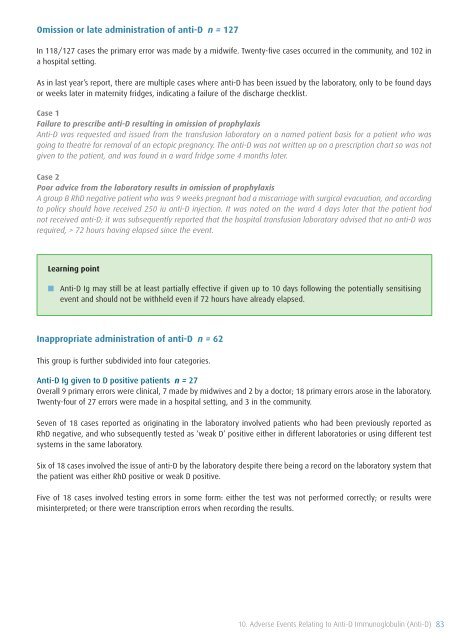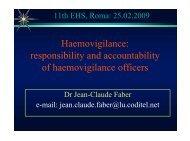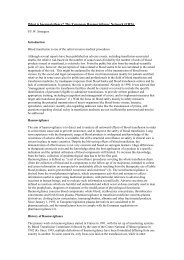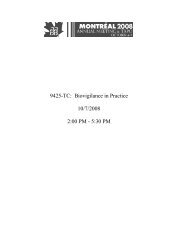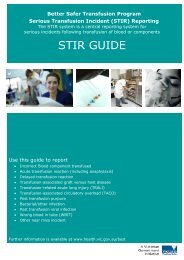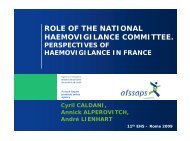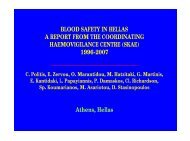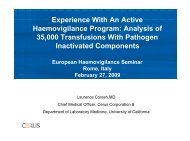SHOT Annual Report 2009 - Serious Hazards of Transfusion
SHOT Annual Report 2009 - Serious Hazards of Transfusion
SHOT Annual Report 2009 - Serious Hazards of Transfusion
Create successful ePaper yourself
Turn your PDF publications into a flip-book with our unique Google optimized e-Paper software.
Omission or late administration <strong>of</strong> anti-D n = 127<br />
In 118/127 cases the primary error was made by a midwife. Twenty-five cases occurred in the community, and 102 in<br />
a hospital setting.<br />
As in last year’s report, there are multiple cases where anti-D has been issued by the laboratory, only to be found days<br />
or weeks later in maternity fridges, indicating a failure <strong>of</strong> the discharge checklist.<br />
Case 1<br />
Failure to prescribe anti-D resulting in omission <strong>of</strong> prophylaxis<br />
Anti-D was requested and issued from the transfusion laboratory on a named patient basis for a patient who was<br />
going to theatre for removal <strong>of</strong> an ectopic pregnancy. The anti-D was not written up on a prescription chart so was not<br />
given to the patient, and was found in a ward fridge some 4 months later.<br />
Case 2<br />
Poor advice from the laboratory results in omission <strong>of</strong> prophylaxis<br />
A group B RhD negative patient who was 9 weeks pregnant had a miscarriage with surgical evacuation, and according<br />
to policy should have received 250 iu anti-D injection. It was noted on the ward 4 days later that the patient had<br />
not received anti-D; it was subsequently reported that the hospital transfusion laboratory advised that no anti-D was<br />
required, > 72 hours having elapsed since the event.<br />
Learning point<br />
■■<br />
Anti-D Ig may still be at least partially effective if given up to 10 days following the potentially sensitising<br />
event and should not be withheld even if 72 hours have already elapsed.<br />
Inappropriate administration <strong>of</strong> anti-D n = 62<br />
This group is further subdivided into four categories.<br />
Anti-D Ig given to D positive patients n = 27<br />
Overall 9 primary errors were clinical, 7 made by midwives and 2 by a doctor; 18 primary errors arose in the laboratory.<br />
Twenty-four <strong>of</strong> 27 errors were made in a hospital setting, and 3 in the community.<br />
Seven <strong>of</strong> 18 cases reported as originating in the laboratory involved patients who had been previously reported as<br />
RhD negative, and who subsequently tested as ‘weak D’ positive either in different laboratories or using different test<br />
systems in the same laboratory.<br />
Six <strong>of</strong> 18 cases involved the issue <strong>of</strong> anti-D by the laboratory despite there being a record on the laboratory system that<br />
the patient was either RhD positive or weak D positive.<br />
Five <strong>of</strong> 18 cases involved testing errors in some form: either the test was not performed correctly; or results were<br />
misinterpreted; or there were transcription errors when recording the results.<br />
10. Adverse Events Relating to Anti-D Immunoglobulin (Anti-D) 83


